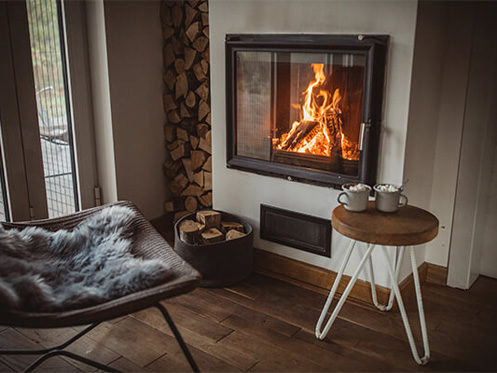Recent cooler temperatures have people thinking about heating equipment maintenance or replacement. Will your heating equipment be ready and are you completely confident with your direction? Here are some common myths and answers that may help you make the right decisions.
“My HVAC contractor knows what’s best for me”. Does your contractor stay current with never-ending industry changes? Some rely only on their history as they sit on their laurels, but the HVAC trade changes rapidly. Ongoing training is necessary.
When in doubt it makes sense to ask questions. Does your HVAC contractor have enough business insurance? Is it just basic business insurance required by the City of Lincoln, or do they carry a higher amount? Do they perform drug and alcohol testing or criminal history checks on their employees? Who is that stranger in your home?
If you are not completely familiar with your HVAC contractor it makes sense to call the Better Business Bureau to check out their past business practices.
“My furnace does not have a City of Lincoln inspection sticker”. City of Lincoln code requires all heating equipment to be installed by licensed and insured contractors. All installed heating equipment must be inspected.
If your furnace or water heater was installed after 1970, it should have a visible City of Lincoln inspection sticker. If it does not you may be at risk. If you have any questions, call the City of Lincoln HVAC Codes Department at (402) 809-1116.
If the installer did not take out a permit, why didn’t they? Are they licensed and insured? Will, you be covered by insurance if illegally installed equipment causes damage or death?
A responsible HVAC installer cares about your health and safety among other things. They are not in it just for the money.
“My furnace has never needed service other than changing air filters”. Be very careful feeling comfortable with the safety of a furnace that has not been regularly maintained. Fossil fuel heating equipment is dangerous. All heating equipment needs to be properly maintained just like vehicles. Scheduled service keeps equipment reliable. The risk of defective heat exchangers increases with age, resulting in a higher risk of carbon monoxide poisoning.
Additionally, some equipment manufacturers require regular maintenance, or warranties are voided. Well-maintained equipment has longer equipment life, better energy efficiency, and it’s safer.
“My furnace is in good shape because it has been serviced regularly”. It depends on how well it was serviced. It takes a trained service technician to fully understand the 20 or more basic things to check or adjust. It’s no longer a job for the handyman.
Trained technicians will know where to look for carbon monoxide leaks on fossil fuel equipment heat exchangers. Some equipment has specific weak areas in heat exchangers. This includes furnaces, boilers, unit heaters, and water heaters. Yes, water heaters should also be checked regularly for carbon monoxide leaks!
Typically, a standard leak detector can locate most of the carbon monoxide leaks. In some cases, it takes mirrors or special miniature scopes to identify cracked heat exchangers in hard-to-reach areas.
Defective equipment must be repaired, replaced, or shut off to prevent illness or death.
“I plan to move soon and want to purchase the cheapest unit possible”. A cheap furnace typically means low comfort and poor efficiency. Why be stuck with the results of that decision until you sell the property? Why should anyone suffer comfort or pay expensive energy bills?
Lost property sales could result from taking the cheap way out because buyers are more aware of quality brands than ever. Many consumers use computers to do research and are well versed. They typically prefer to make their own HVAC equipment choices. It’s definitely in their best interest!
“It’s just a rental so let’s put in the cheapest equipment you have”. Tenants are often put at risk from defective heating equipment. There are responsible landlords and then there are others, so tenants need to beware. Landlords that install energy-efficient equipment and promote energy savings typically have less renter turnover. Less potential rent money is wasted on high utilities.
“It’s cheaper to just pay more for natural gas than buy energy-efficient equipment”. Some energy-efficient equipment will pay back the difference in cost over standard equipment in as little as 3 years. Higher energy efficiency is the responsible thing to do to protect our environment.
Hopefully, you will make great choices and be ready for colder weather. Keep safe and warm my friends!

